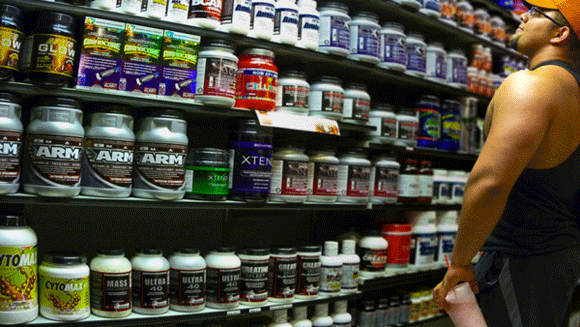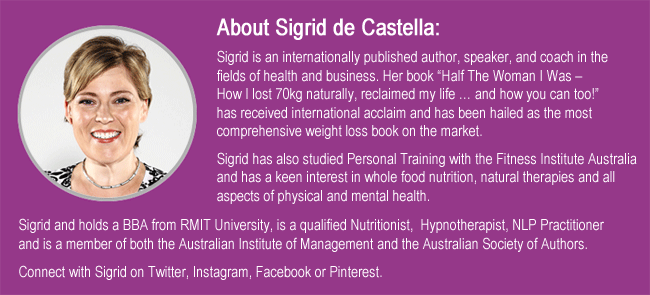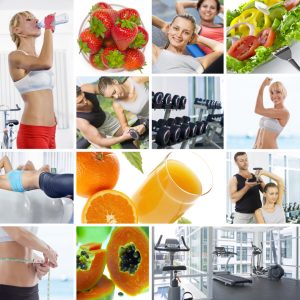Click here for the original InShape News article.
If you’re asking this then you’re probably asking the wrong question ….the real question here is “why do you think you need to take supplements?”

I’ve sure done a lot of research over the years, and my book goes into a lot of depth about every vitamin, mineral and trace element your body needs to stay healthy, the recommended dietary intake of each, what happens if you have too little (or too much), the best natural sources and what effects their uptake by the body. But the truth is it’s difficult to comprehend holistically …and even if you can make sense of the complex web of vitamin-mineral relationships it’s a lot to put into practice.
You know the warning …that dietary supplements may only be of benefit if your dietary intake is insufficient or lacking. But there is more to the jigsaw puzzle of dietary supplements than meets the eye. Manufacturers are well aware that this complex topic can yield them big bucks. In fact, the global dietary supplements market is expected to reach USD 278.02 billion by 2024, according to a recent report by Grand View Research, Inc. So with everyone trying to grab their piece of this health-driven pie you can understand why companies are spending huge wads of cash to tell you why you need their product …and why theirs is better than their competitor’s.
The sad truth of our time is that most people spend more money on pharmaceutical medicines than herbal remedies or supplements. People would rather use a manufactured pharmaceutical ‘pill’ to treat their symptoms, than find a natural cure to treat the root cause. And therein lies the issue …it’s the biggest health care scam of our generation. (You can Google it later, and trust me you’re going to want to.)
Think about it. How many times have you grabbed a paracetamol or aspirin to treat a headache? An anti-inflammatory to treat a body ache? When have you instead aimed to decipher and treat the cause, rather than the symptom?
Life has sped up; it throws us daily curve balls, pumping our bodies with adrenalin to which we use a cocktail of substances, including coffee and alcohol, to manage our daily highs and lows. We’re on a road to somewhere, but it’s not the utopia of health and longevity we’re all hoping for. Almost each new study that comes out shows we’re getting sicker. We might be living longer than our ancestors, but not healthier. Our bodies are massively deficient …lacking in nutrients but more importantly lacking in water. We are chronically dehydrated and malnourished.
The food that’s grown for us by big conglomerates clamouring for profit in a competition rich environment where genetic modification and low-cost-high-yield growth techniques are designed to produce the cheapest prettiest products, means our fruit and vegetables are now only half as nutritious as they were 100 years ago. And as a bonus they are jam packed with an array of toxins to prevent pests and blemishes, toxins that our bodies just aren’t designed to handle. Further with the ever expanding waistline of fast food and manufactured snacks (the processing of which destroys almost all nutritional value in food) we’re now eating as little as 8% of the fresh produce that our parents ate.
Our convenient ‘big gulp’ drinks and soy lattes are packed with sodium, sugars, colours, caffeine and flavours in insurmountable quantities and we’re drinking less water than ever before. Who do you know that drinks half a gallon or 2 litres of water a day? And even that amount is grossly insufficient for the average person. It’s no wonder we’re all dying of ‘lifestyle’ diseases.
So I ask you again “why do you think you need to take supplements?”
Looking for a panacea? The solution really is very simple. Rather than spending your hard-earned cash on the majority of supplements that have very little chance of making any real impact on your health, start with the basics. Eat a diet of 70% whole fresh fruit and vegetables. Keep them as raw as possible. Juice daily. Thoroughly wash your produce before consuming, or better still, buy organic where possible to reduce the amount of toxins your body ingests. Get yourself tested to check your vitamin levels, or buy a Vitastiq and test them yourself.
Read all ingredient labels. Avoid all processed food (anything that can sit on a shelf unrefrigerated for days, weeks or months, or any ingredient you can’t pronounce). Reduce your caffeine and alcohol intake to one shot or two standard drinks a day. Eliminate all added sugars, simple carbohydrates and unhealthy fats. Drink 45mls of water per kilogram (0.7floz per pound) of body weight, per day …minimum.
If after doing that for 2 weeks you still feel like you need a supplement then start taking a natural super greens supplement made from dehydrated and powdered fruit and vegetables. The most you should need above that is a good quality multi-vitamin from a GMP Certified manufacturer – remember it’s quality not quantity.
Food is medicine – millennia of evolution have designed our bodies that way. In fact there’s a growing amount of evidence, including one recent study led by Dr. David Suskind published in the December 2016 Journal of Clinical Gastroenterology, that a change in diet alone can cure many ailments and diseases, including Crohn’s.
Whilst a change in diet will work for the majority, there are some natural herbal supplements that can be good for individual conditions (especially hormone-related conditions and detoxification). And it’s best to see a qualified Naturopath or Herbalist to ensure you get the right compounds in their most natural state in the right quantities for your particular circumstances. Remember, everyone’s ‘body’ is different and responds to different treatments and diets.
So if you think you need a supplement because of some advert, a friend told you, or it just seemed like a good idea, then think again. Get back to basics and give your body all it needs, naturally.
#inshapenews #goodadvice #dontbefooled #spendmoneywisely #backtobasics #healthylife #healthydiet #foodasmedicine #supergreens #vitamnins #minerals #traceelements #macronutrients #micronutrients #water #drinkmorewater #eattolive #naturalfood #lovelife #behappy #doinedtotakesupplements


